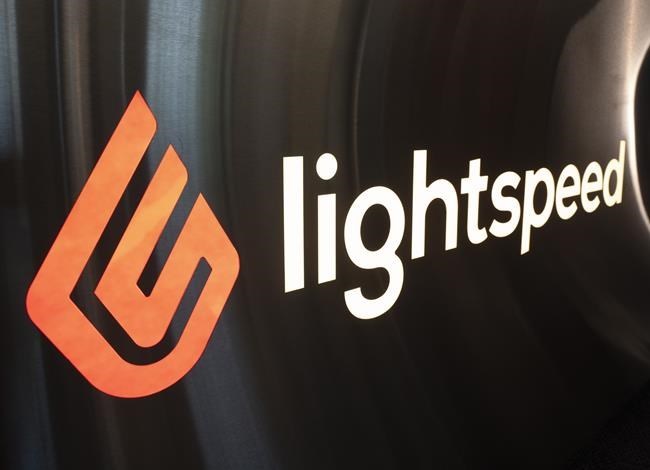An ongoing shift in its payments processing strategy helped Lightspeed Commerce Inc. record a 25 per cent increase in its second-quarter revenue.
The Montreal-based e-commerce technology company, which keeps its books in U.S. dollars, said Thursday that its revenue for the period ended Sept. 30 totalled US$230.3 million, up from US$183.7 million in the same quarter last year.
The company spent much of the quarter at work on its strategy to integrate customers into its own payment processing offering, rather than having the option to use a competitor's platform. The change has long been positioned by Lightspeed as a way to improve its financial performance by bringing in more revenue per customer.
Chief executive Jean Paul Chauvet said the company's biggest concern was that the new strategy to make Lightspeed's payments offering mandatory would trigger customer churn.
"Fortunately, this risk has not materialized," he said on a Thursday call with analysts.
"On the contrary, our churn levels remain very much in line with our historical ranges."
That realization will come as a relief to Chauvet, who was appointed chief executive in February 2022 and has been working to make the business profitable and help its stock rebound after falling from its 2021 high.
“At the beginning of this year, I promised that fiscal year 2024 will be the year of execution,” Chauvet said.
“The results from this quarter firmly show that we are delivering on that promise.”
Chauvet's bellwether for the company's progress has long been his goal to reach positive adjusted earnings before interest, taxes, depreciation and amortization.
On Thursday, Lightspeed made US$242,000 in adjusted EBITDA. That total compared with an adjusted EBITDA loss of $8.5 million a year prior and will put Lightspeed in an "excellent position" to meet its goal of break-even or better for the fiscal year, Chauvet said.
Many companies use adjusted EBITDA and other adjusted metrics to strip out one-time items or account for seasonal or volatile changes. However, it is not a metric accepted under international accounting standards because there is no uniform list of items included in the figure.
Net income is the more traditional measure of profitability.
Lightspeed's net loss in the second quarter hit US$42.5 million or 28 cents per share compared with a loss of US$79.9 million or 53 cents per share a year earlier.
Asked about when the company may reach profitability based on net income, Chauvet mentioned Lightspeed advances funds to some of its customers.
"The reason why cash flow is negative, it's because the majority of that is for cash advances," he said in an interview.
"As long as that business is going to be growing and it's growing at a very hefty rate, that means the money we lend to our customers is going to grow and that means when you look at our operations, it's going to look like we're burning cash, but at the end of the day, we're not."
"We're advancing cash because the returns are very strong on that."
On an adjusted basis, Lightspeed said it earned four cents per share in its latest quarter compared with an adjusted loss of five cents per share in the same quarter last year.
The results pushed Lightspeed's stock price up by $2.80 or 16 per cent to $20.10 in mid-morning trading.
In its outlook for its third quarter, Lightspeed said it expects revenue between US$232 million and US$237 million and adjusted earnings before interest, taxes, depreciation and amortization of about US$2 million.
Lightspeed also said it expects revenue for its 2024 financial year to come in between US$890 million and US$905 million and adjusted EBITDA to be break even or better.
Baked into those projections are "increasing signs that consumers plan to be more frugal this upcoming holiday season," Lightspeed's chief financial officer Asha Bakshani warned on the analyst call.
This report by The Canadian Press was first published Nov. 2, 2023.
Companies in this story: (TSX:LSPD)
Tara Deschamps, The Canadian Press



